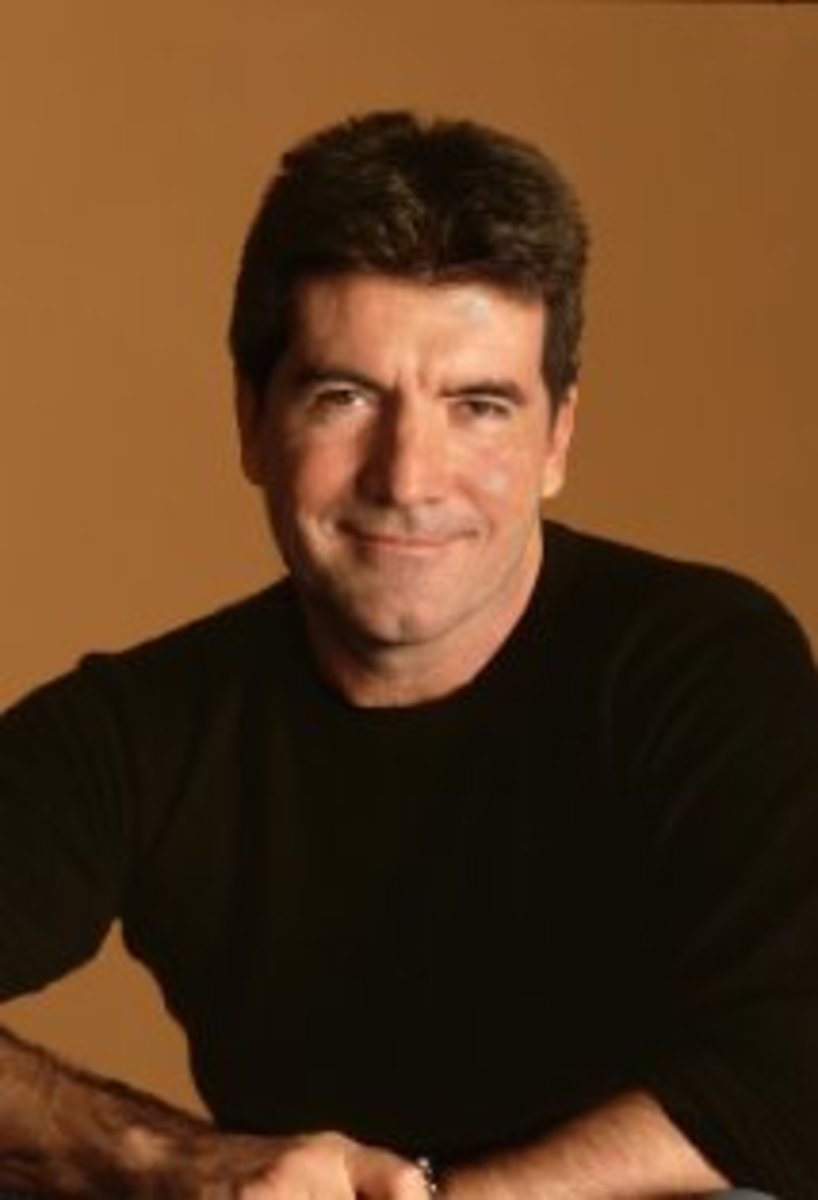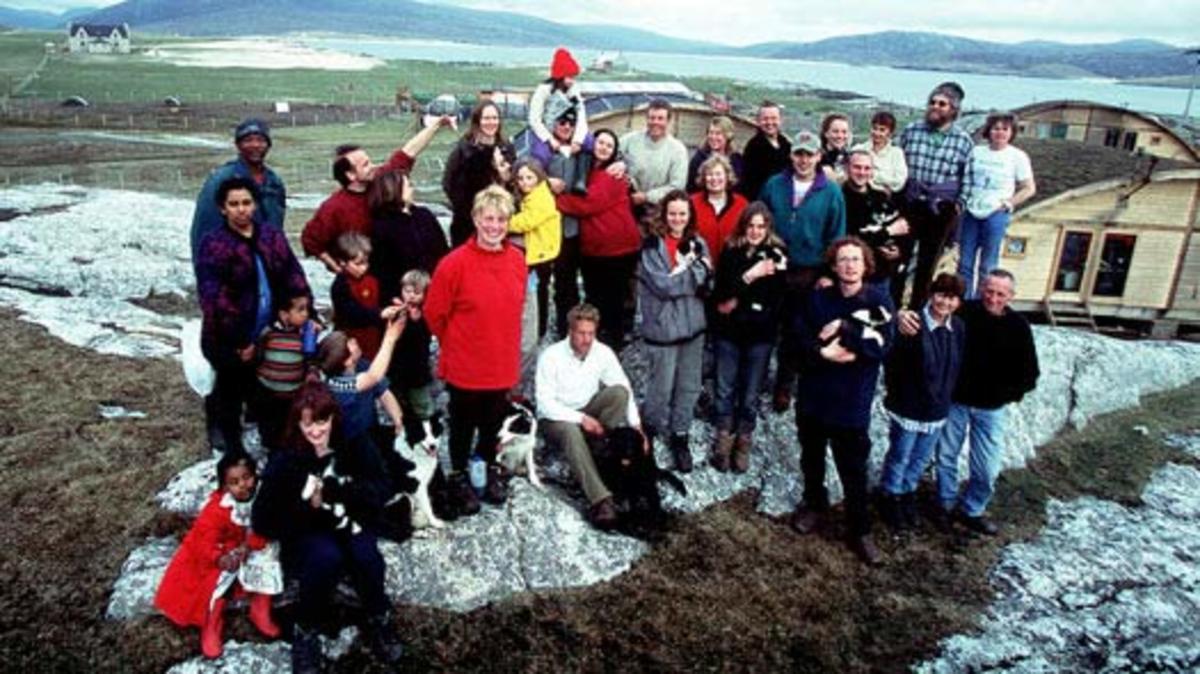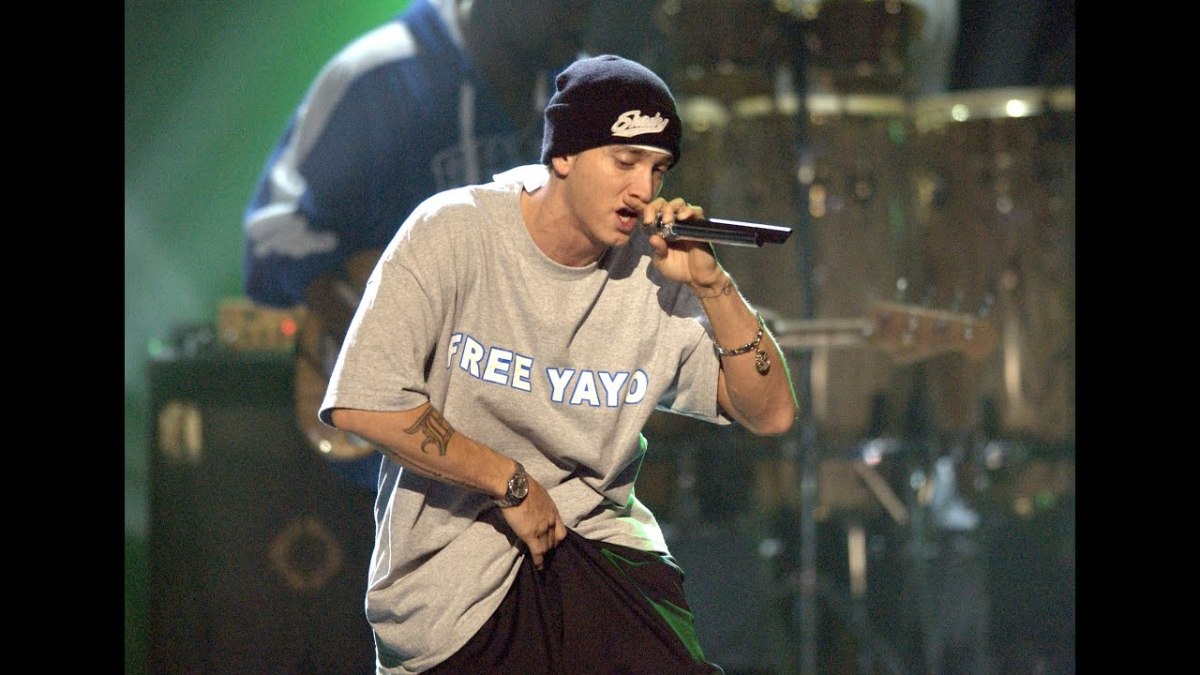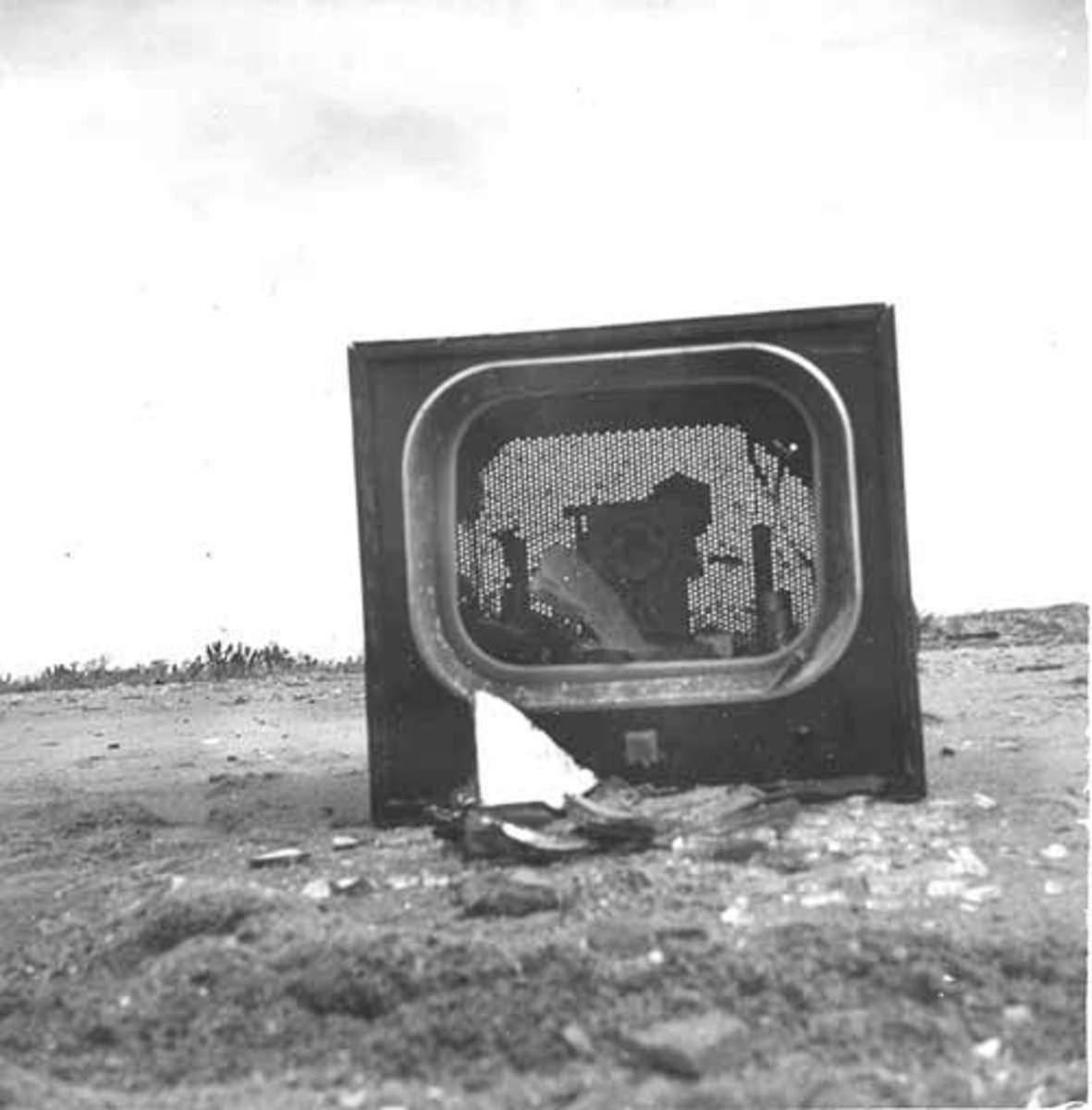Reality Television: How Much Is Enough?


Voyeurism or Entertainment?
Reality television, although has been around since the beginning of television, has become extremely popular over the last six years. Reality tv currently dominate the airway as millions of people in North America and internationally become voyeurs into the lives of celebrities, 'has beens' or ordinary folks. Like many viewers in North America, I have had my generous share of reality television. While some of these shows are very interesting, entertaining and offer useful information in a non-threatening way, many have stretched the boundary of privacy to extreme public exhibitionism and sometimes downright humiliation. Some of these shows leave you wondering "Is there anything considered private anymore? How much is enough?
According to Wikipedia,reality television is a genre of tv programming that presents supposedly unscripted dramatic or humorous situations, documents actual events, and usually features ordinary people instead of professional actors. It is said that the history of reality tv has its origins as early as the advent of television itself. Typically in the early days of television, reality tv programmes were primarily game shows, such as Wheel of Fortune 1952-53; 1975-91 1983-present; The Price is Right (CBS) 1972-present; and Family Feud 1976-85, 1988-95, 1999 to present.
In the 1940s - 1950s, television began showing non-actors in unscripted situations, such as the 1948, Allen Funt's Candid Camera, which was based on his previous 1947 radio show, Candid Microphone. In the 1960s - 1970s, television started to showcase participants who were eager to sacrifice some of their privacy and dignity in a televised competition. This was the beginning of modern reality tv as we now know it. Such shows as the Dating Game and the Newlywed Game were created in the 1970s and whet our appetite for voyeurism. The 1980s -1990s reality television focused primarily on law enforcement with such shows as COPS, 1989; To Serve and Protect, 1993; LAPD Life on the Beat, 1995 and World's Wildest Police Videos, 1998.
In the 2000s, modern reality television became extremely popular in North America as well as in other parts of the world, such as Europe, India, Australia, and the Philippines. For instance shows such as American Idol, which debuted in 2002 in the US, is now popular in Canada, and Australia. There are hundreds of reality television shows that have been generated in the 2000s, with 2003-2004 having the highest number of reality shows in most genres. Some of the genre of realty tv are Documentary style: which include Historical re-creation, Science, Dating, Law Enforcement, Makeovers, Lifestyle Change, Fantasied Fulfilled and Docu-soaps starring Celebrities; Hidden Camera; Reality Game Shows which include Talent Searches; Spoofs, Supernatural and Parodies.
The Reality Television Shows Genres
In the Documentary Style camera crews follow the daily interactions of people in ordinary places, such as airports or restaurants, or follow people in a specific profession. There are over fifty shows listed in this category from 1964 to 2010 and showing in countries such as the USA, Canada, Japan, Australia and the UK. Some of my favourite shows from the documentary genre are Making the Band, 2001; Jamie's Kitchen, 2003; Amish in the City, 2004; Family Plots, 2005; The Dirtiest Jobs, 2005; Deadliest Catch, 2005; Miami Ink, 2005; The Real Housewives of Orange County, 2006; New York City, 2006; Atlanta, 2008 and New Jersey 2009; Jon and Kate Plus 8, 2007; and Little People, Big World.
The Historical recreation is a sub-class of the Documentary sub genre of reality tv. In this category of reality shows, modern-day contestants are placed in the lifestyle of historical people or places. This sub-category is not very popular in North America. You may recall the show, The Kid Nation, 2007.The Science category of reality tv shows documents scientific analysis or exploration firsthand. This category includes The Mythbusters, 2003.
A very popular category of reality shows is the Dating shows. Here couples or singles are brought together in dating or romantic situations. There are over sixty titles of shows listed in this category, dating from 1973 to 2009. Most of the shows were filmed in 2003-2004. Some of the most popular shows are Temptation Island, 2001; The Bachelor 2002; The Bachelorette, 2003; Who Wants To Marry My Dad?, 2004 and Momma's Boys, 2008. Another sub genre is Law Enforcement, which was more popular prior to 2000. This sub-category include such popular shows as COPS,1989; Rescue 911, 1989; Real Stories of the Highway Patrol, 1993; To Serve and Protect, 1993; LAPD Life on the Beat, 1995; World's Greatest Police Video, 1998.
The Makeover Show is another sub genre of reality television that portrays ordinary people having home or lifestyle makeovers with the assistance of professionals. This sub genre was very popular in North America in the 2000s, with most shows created in 2003 and 2004. Popular makeover shows are Trading Spaces, 2000; What Not To Wear, 2001; Extreme Makeover, 2002; Clean Sweep, 2003; Queer Eye for the Straight Guy, 2003; Queer Eye for the Straight Girl, 2005 and Style by Jury, 2006.
Lifestyle Change is another sub genre that is fairly popular in North America. This sub genre showcases ordinary people experiencing an extraordinary change in their environments or occupations. Such shows such as Wife Swap, 2003; Biggest Looser, 2004; Nanny 911, 2004; Super nanny, 2005. Rich Bride, Poor Bride, X-weighted; Wedding SOS; The Big Flip; Til Debt Do us Part and Party Mamasare some of the more popular shows in this sub genre and are shown in USA, Canada and Europe.
One of the most popular sub genre is Docusoap Starring Celebrities, also known as celebrealities. This sub genre documents celebrities as they go about their lives or on location and given specific tasks. Shows such as The Anna Nicole Show, 2002; The Osbournes, 2002; Newlyweds: Nick and Jessica, 2003; The Simple Life, 2003; The Surreal Life, 2003; Gene Simmons Family Jewels, 2006; Britney and Kevin: Chaotic, 2005; The Hills, 2006; Keeping Up with The Kardashians, 2007 were very popular reality shows in North America.
Hidden Camera is another genre of reality television and dates as far back as the early days of television. This genre includes shows as Candid Camera, 1948, TV Bloopers and Practical Jokes, 1984; Cheaters, 2000; The Jamie Kennedy Experiment, 2002; Punk'd, 2003; Just for Laughs, 2005 and Undercover Boss, 2010.
Reality Competition Game Show is the biggest and most successful reality genre and features contestants who compete for prizes, while often living together in close quarters. Usually, they feature the eliminations of contestants until a winner is chosen. Shows such as Beat the Clock, 1950; Big Brother, 1999; Who wants to be a Millionaire, 1999; Survivor, 2000; Amazing Race, 2001; Fear factor, 2001; Paradise Hotel, 2003; Deal or No Deal, 2006; Wipeout,2008 and Cash Cab, 2009 are included in the reality competition category. This genre of reality tv is very popular because of viewers' participation in the selection of a winner. Voting is done by the viewing audience, participants on the show, a panel of judges, or some combination of the three. Also in this category are some reality tv shows that portray participants who are really bad at doing something, for example, Canada's Worst Driver, 2005 and Canada's Worst Handyman, 2006.
Talent Search is a sub genre of the Reality Competition Game shows. This sub genre is similar to the reality game shows, because contestants are eliminated until a winner is chosen by the viewing audience and a panel of judges. It however differs because participants usually expect to display the highest level of skills in the performing arts, business, designs etc. Some popular shows in this sub genre are Star Search, 1980; American Idol, 2002; Canadian Idol, 2002; American Top Model, 2003; Canadian Top Model, 2004; The Apprentice, 2004; Dancing with the Stars, 2004; Project Runway, 2004; So You Think You Can Dance, 2005' America Got Talent, 2006; and America Best Dance Crew, 2008.
Spoof is a sub genre of reality television shows in which one or more participants are tricked into believing they are taking part in a legitimate show when they are actually the victim(s) of a joke. This category is similar to the Hidden Camera sub genre. The Joe Schmo Show, 2003 is one of the more popular program found in this category.
Supernatural or Paranormal Shows though not very popular is a growing sub genre in reality television. In this category of reality shows the participants are placed in frightening situations which mostly involve the paranormal. Show such as Ghost Hunters is a part of the supernatural sub genre.
Parody is the newest sub-class of the reality television genre. While they are not reality TV in the proper sense, the scripted parody shows reflect the level of pop culture status that reality TV has achieved. Parodies sometimes poke fun at other very popular shows or other life's experiences. Trailer Park Boys, 2001 and The Office, 2005 are shows listed in this category.
The most popular genres: Dating and makeover shows from the Documentary style genre and Talent Searches, a sub-category of the Reality Game shows genre are the most popular types of reality television in the USA and Canada in the 2000s. 2003-04 is the most prolific years in North America for these genres of shows. For instance, in 2003, there were nine popular dating shows; in 2004 there were eight and in 2005 there were six. The Talent Shows are the most popular sub-category within the Reality Game shows genre. There are over fifty seven different talent shows in the USA and Canada since 2001-2008. These shows include the very popular American Idol, 2002 - present; So You Think You can Dance, 2005 -present and Dancing with the Stars, 2004 -present.
Reality television is obviously a cash cow for television networks. Millions of viewers tune in to hundreds of television programs to be voyeurs into the entertaining or ridiculous lives of celebrities, wannabes or ordinary people. As we become more isolated from each other due to the advance of technology, we seek other ways to stay in touch with others, even if the interaction is one way; much like looking through a one way mirror. It is little wonder that reality television has garner mega popularity as it has in recent years. Another positive component of some reality television shows, usually those in the Reality Competitive Game shows, is the interactive nature of these shows. Viewers feel that they control the outcome; hence these shows have the impact of empowering the audience somewhat. Is reality television all negative? I'd say a resounding NO! The choice is yours.








